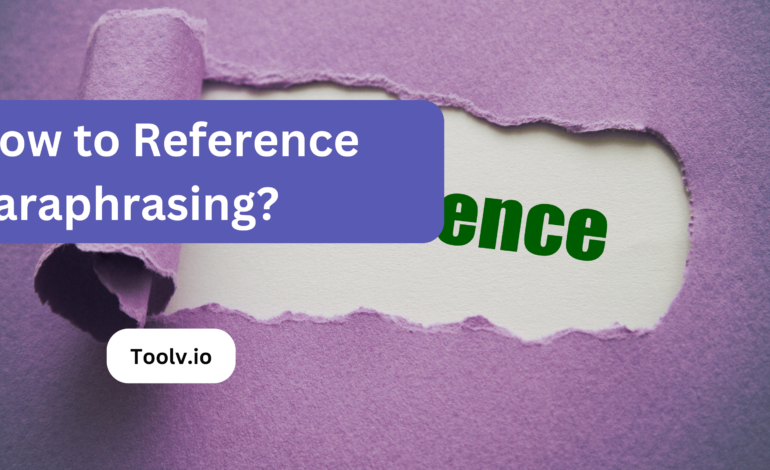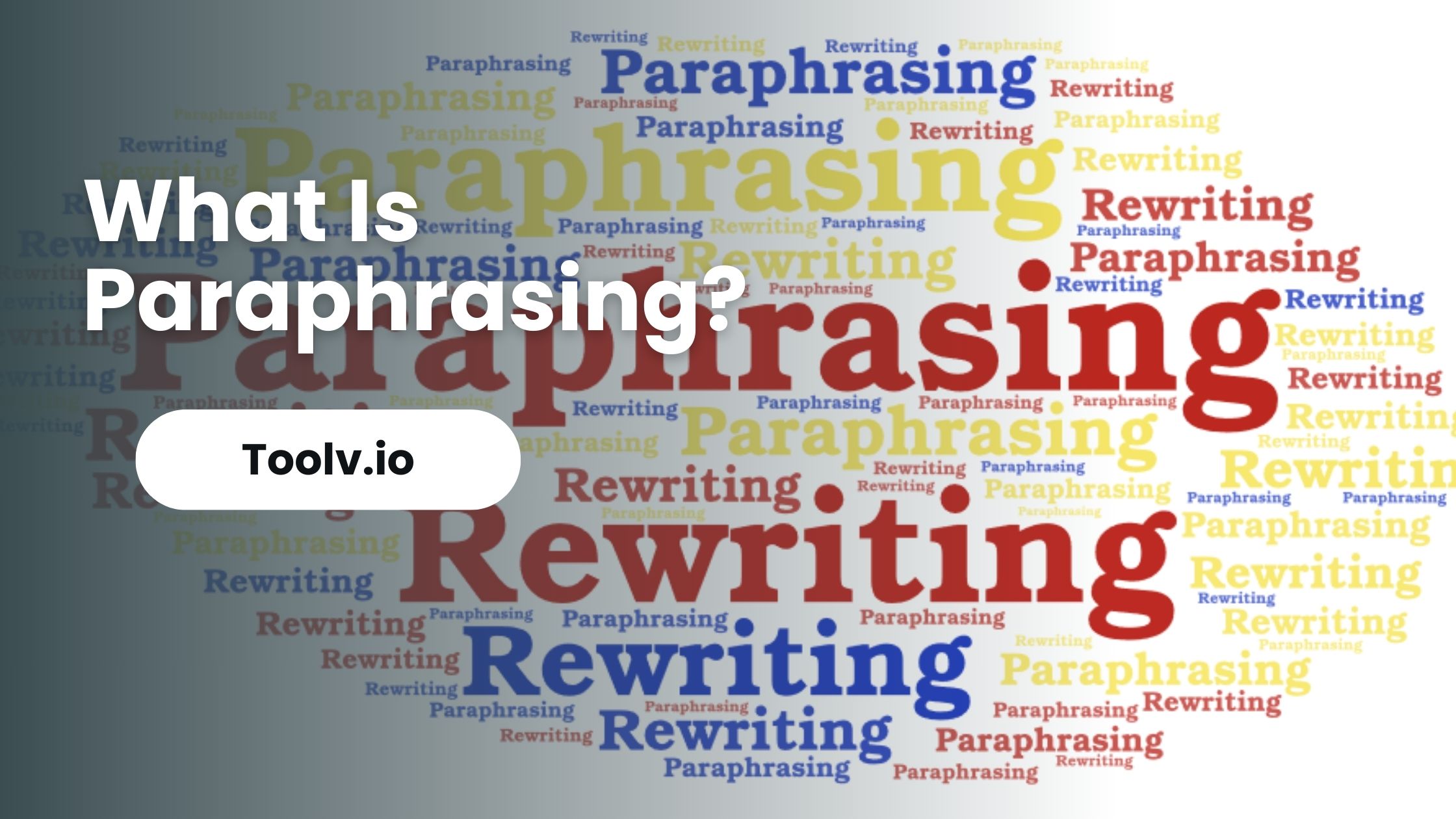Does Paraphrasing Need to Be Cited?

Paraphrasing means you take someone else’s ideas and put them in your own words. It’s like re-telling a story differently. But, even if you change the words, the ideas are still from the original person.
In this article, we will discuss why it’s important to cite even when you paraphrase. We’ll look at what makes paraphrasing different from copying exactly, and why giving credit for ideas matters.
Does Paraphrasing Need to Be Cited?
Yes, paraphrasing needs to be cited. When you paraphrase, you’re using someone else’s ideas, but in your own words. It’s not just copying their words, but the idea is still theirs.
So, you must give them credit. This shows you respect their work and avoid plagiarism. To paraphrase well, read the original text and understand it. Then, write it in a new way.
It’s like explaining someone’s idea to a friend in your style. Remember to still cite the source. This is honest and fair. It helps readers find the original idea too.
Does MLA Require Citations for Paraphrasing?
Yes, the Modern Language Association (MLA) format requires citations for paraphrasing. When you paraphrase, you rewrite someone else’s ideas in your own words. It’s different from quoting, where you use their exact words.
So, you must give them credit by citing their work. Citing in MLA style helps your readers find the source of the information. It also shows that you’re not trying to pass off the ideas as your own.
By citing, you respect the author’s work and avoid plagiarism. Remember, whether you quote or paraphrase, always include a citation. It’s key in academic writing to acknowledge where you got your ideas from.
What Are the Rules for Paraphrasing?
- Understand the Source: First, thoroughly read and understand the original text. You need to grasp the main idea and the supporting details.
- Rewrite in Your Own Words: Rewrite the text in your own words. Avoid using the same phrases or sentence structure as the original. It’s not just about replacing words with synonyms; it’s about rephrasing the ideas in a new way.
- Keep the Original Meaning: Ensure that your paraphrase accurately reflects the original text’s meaning. Don’t add your own opinions or interpretations.
- Use Quotation Marks for Direct Quotes: If you use exact phrases from the original, place them in quotation marks.
- Cite the Source: Even though you’re paraphrasing, the idea originated from someone else’s work. Provide proper citations according to the required format (like APA, MLA, etc.) to avoid plagiarism.
- Check Your Version Against the Original: Compare your paraphrased text with the original to ensure you haven’t inadvertently copied phrases or structure, and that the meaning remains true to the source.
Do You Have to Cite When You Summarize?
When you summarize something, you still need to cite where the information came from. This is important because it gives credit to the original author. Even if you put the ideas in your own words, the thoughts and information originally came from someone else’s work.
So, it’s fair and right to mention where you got it from. Citing in a summary also helps your readers to find the source if they want to learn more. It’s not just about following rules, it’s about being honest and respectful of other people’s hard work.
Remember, using someone’s ideas without giving them credit is not okay, so always cite your sources, even in a summary.
What Is the Difference Between Citing and Paraphrasing?
Citing and paraphrasing are both important in writing, but they serve different purposes.
Citing: Citing is when you mention where you got your information. It’s like pointing to the source and saying, “This is where I found this.”
You do this to show you’re not taking credit for someone else’s ideas or words. When you cite, you usually give details like the author’s name, the title of their work, and where it was published.
Paraphrasing: Paraphrasing, on the other hand, is when you take someone’s idea and say it in your own words. It’s like retelling a story in your own way.
You do this to make the information fit better in your own work or to make it easier for your readers to understand. Even when you paraphrase, you still need to cite where you got the original idea from.
So, while citing is about giving credit, paraphrasing is about restating ideas in a new way. Both need to be done carefully to respect the original creator’s work and to avoid plagiarism.
FAQs
Do I need to cite a source if I paraphrase its content?
Yes, you need to cite a source even if you paraphrase its content. Paraphrasing involves restating information in your own words, but the ideas or information originally come from another source, so it’s important to give credit to avoid plagiarism.
Is paraphrasing without citation considered plagiarism?
Yes, paraphrasing without citation is considered plagiarism. Even if you have changed the words, the underlying idea or information belongs to someone else, and not citing it is a form of intellectual theft.
Can I just change a few words in a sentence and avoid citing?
No, simply changing a few words is not enough to avoid the need for citation. This practice, often called ‘patchwriting’, still relies on the source’s ideas or structure, so proper citation is necessary.
How do I properly cite a paraphrased passage?
To properly cite a paraphrased passage, use the citation style recommended or required for your work (like APA, MLA, or Chicago). Include an in-text citation close to the paraphrase and a full citation in your bibliography or works cited page, according to the rules of your chosen citation style.
Conclusion
Paraphrasing, even when using tools like Toolv.io, needs proper citation to acknowledge the original source. It’s about respecting the author’s ideas and efforts.
Toolv.io helps in changing words but the core concept remains from the original work. This makes citing essential, ensuring ethical writing standards are upheld. Remember, using others’ ideas, even when paraphrased, requires giving credit to maintain integrity in your work.





